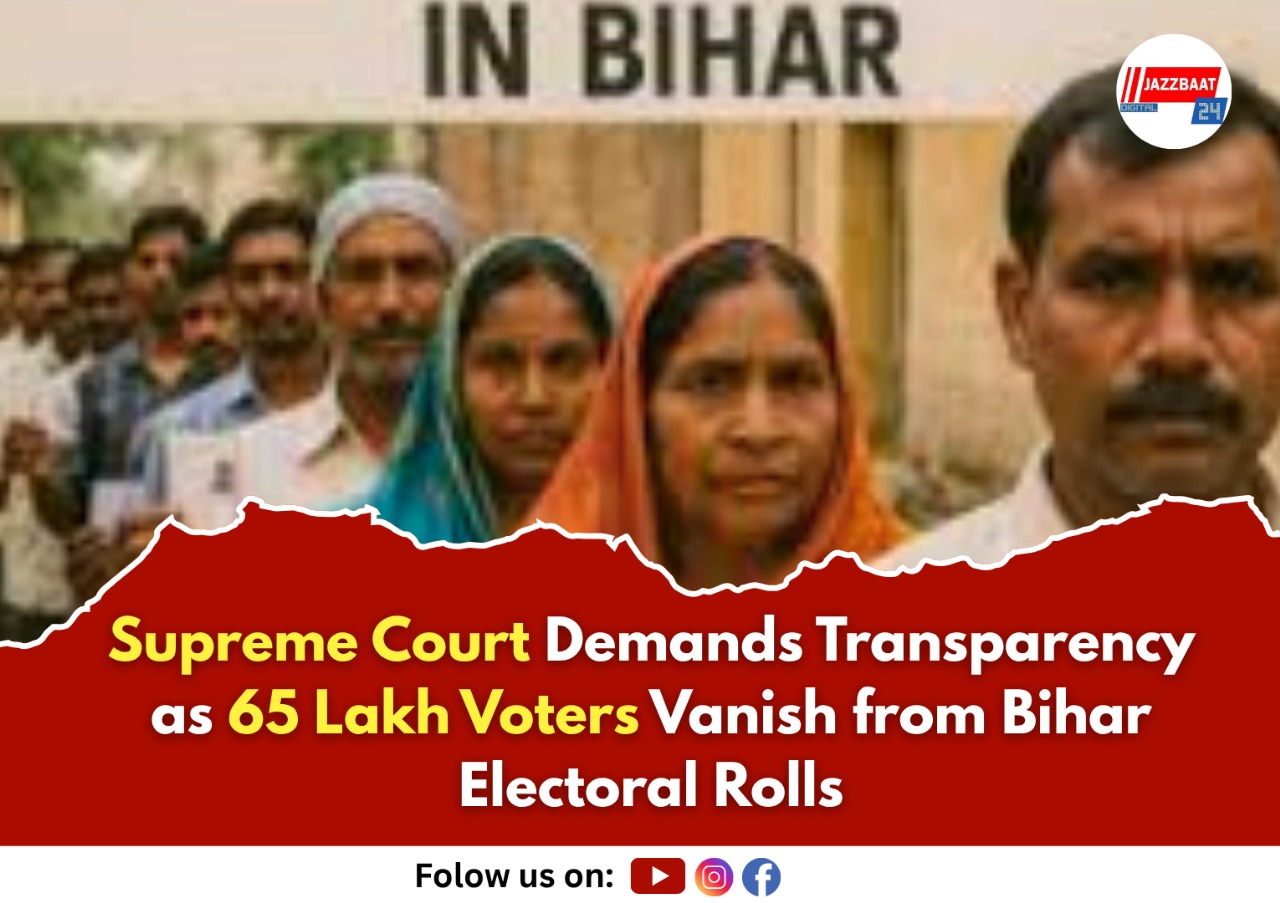
The Supreme Court has stepped into a brewing controversy over Bihar's electoral integrity, demanding answers from the Election Commission of India (ECI) regarding the mysterious deletion of 65 lakh names from the state's voter list without proper justification.
A three-judge bench comprising Justices Surya Kant, Ujjal Bhuyan, and N K Singh issued notices to the ECI following a petition by the Association for Democratic Reforms (ADR), which alleged serious irregularities in Bihar's Special Intensive Revision (SIR) process.
The draft electoral roll published on August 1 showed a staggering 65 lakh voters had been removed, yet the ECI failed to provide individual reasons for these deletions. According to ADR's advocate Prashant Bhushan, while the poll body claims voters were deleted because they were "dead" or had "migrated," no specific list identifying which voters fall into which category has been made public.
"They have not given a list of those names... They should disclose who the 65 lakhs are, who are dead, who have migrated," Bhushan argued before the court, highlighting the opacity surrounding the massive voter purge.
Perhaps most concerning is ADR's revelation that the ECI possessed detailed deletion data but deliberately concealed it. The organization obtained evidence showing that an earlier version of the electoral roll shared with some political parties on July 20 included a column titled "Uncollectable Reason" explaining each deletion. However, this crucial information was mysteriously removed before the draft roll's public release.
The ECI's own press note from July 25 provided broad categories 22 lakh deceased voters, 7 lakh duplicates, and 35 lakh who had migrated or were untraceable, but failed to specify which individual voters belonged to which category.
Adding to the controversy, ADR highlighted that many deletions occurred without recommendations from Booth Level Officers (BLOs), the frontline officials responsible for voter verification. In some districts, over 10% of enumeration forms were marked "not recommended" by BLOs, raising questions about the deletion process's legitimacy.
Justice Kant acknowledged that according to ECI's Standard Operating Procedures, political party representatives should receive voter lists at the block level. However, ADR claimed this wasn't consistently done, with reasons for deletions remaining undisclosed even when lists were shared.
The implications extend far beyond administrative oversight. Voters whose names don't appear in the draft roll lose access to legal remedies like notices, personal hearings, and appeals under the Registration of Electors Rules. This effectively disenfranchises them without due process, creating what ADR calls "the biggest risk of disenfranchisement."
The Supreme Court has given the ECI until Saturday to file a comprehensive response, including details of which political parties received voter lists. Justice Kant assured that the court would ensure "every voter who is likely to be affected gets the requisite information."
With Bihar's elections approaching and the main petition scheduled for hearing on August 12, this case could set important precedents for electoral transparency across India. The court's intervention signals that democratic processes must remain open to public scrutiny, especially when millions of voting rights hang in the balance.